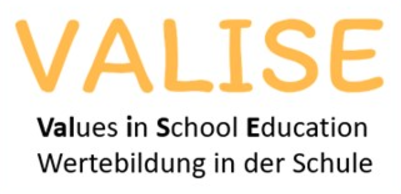Authors:
Scholz-Kuhn, R., Makarova, E., Bardi, A., Litzellachner, L.K., Benish-Weisman, M. & Döring, A.K.
Goal of the report:
This study looked at children’s personal values and behaviour during early primary school years in Switzerland. Every few months, over a year and a half, children were asked about their values, and teachers were asked about the children’s value-related behaviour . This study aimed to find out:
- How values develop over time at this age.
- Whether values would predict later development of behaviour, and vice versa.
Findings:
Overall, the study revealed that over time, as the children got older, the importance of different values changed. They also found that values predicted behaviour development but also some behaviours predicted value development. Specifically, the study showed that:
Value development:
- Self-transcendence values (universalism, benevolence) became more important to children over time, while self enhancement values of power and achievement became less important.
- Openness to change values (self-direction, stimulation & hedonism) became more important over time.
- Conservation values (tradition, conformity & security) became more important over time, but this development slowed down later on.
How values predicted future behaviour:
- Children who chose universalism and benevolence values as more important than others, were seen to be more supportive of their classmates later on. Children who chose self-direction, stimulation and hedonism values as more important than others, were seen to be more motivated to learn later on.
- Children who chose self-enhancement values of achievement and power as more important than others, were seen to be more competitive in striving for achievements later on.
How behaviour predicted future values:
- Children who were rated by their teachers as supportive of classmates developed more important self-transcendence values (benevolence and universalism) later on.
- Children who were rated by their teachers as highly motivated to learn developed more important openness to change values (self-direction, stimulation, and hedonism) later on.
- Children who were rated by their teachers as competitive developed more important self-enhancement values (power and achievement) later on.
- Children who were rated by their teachers as disciplined and obeying rules developed more important conservation values (conformity, security, and tradition) later on.
To conclude, in children in the beginning of primary school, values predict future behaviour, but behaviour also predicts future values.
Implications for Educators:
Policy and Curriculum Level
Evidence on Schwartz’s values circle shows how systematically children’s values are related to their behaviour in school, such that supportive behaviour is related to values of benevolence and universalism values, learning-oriented behaviour is related to values of self-direction and stimulation, and disciplined behaviour is related to values of tradition, conformity, and security. In particular, teacher training could highlight how the development of specific values can be facilitated by encouraging the behaviours that express them in the classroom.
School Level
Schwartz’s values circle may facilitate communication about values and value-related actions in the school context, exploring how values in the school and classroom affect values of individual children and how values predict actions.
Classroom Level
Teachers may consider both values and behaviours when trying to understand children’s development. Modelling desirable values in their behaviours, integrating them into daily lessons, and fostering discussions about these values both in and outside of the classroom (e.g., extracurricular activities) can be powerful tools in values education. Teachers may specifically encourage those behaviours that are associated with later development of desirable values, such as supporting classmates.
